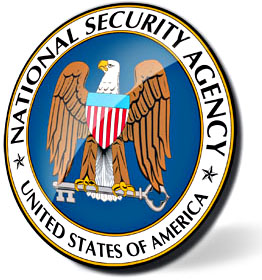The Privacy and Civil Liberties Oversight Board will release a report on the NSA’s phone records program tomorrow, but apparently plenty of reporters already have advance copies. The headline news is the report’s conclusion that Section 215 of the Patriot Act doesn’t authorize  the government to collect bulk phone records, but there’s less there than meets the eye. The board was split 3-2 on this question, with all the liberals saying the program isn’t legal and all the conservatives saying it is. That’s a bit of a snooze.
the government to collect bulk phone records, but there’s less there than meets the eye. The board was split 3-2 on this question, with all the liberals saying the program isn’t legal and all the conservatives saying it is. That’s a bit of a snooze.
“We have not identified a single instance involving a threat to the United States in which the telephone records program made a concrete difference in the outcome of a counterterrorism investigation,” said the report, a copy of which was obtained by The Washington Post. “Moreover, we are aware of no instance in which the program directly contributed to the discovery of a previously unknown terrorist plot or the disruption of a terrorist attack.”
….In its assessment of the program’s value, the board scrutinized 12 terrorism cases cited by the intelligence community that involved information obtained through the Section 215 program. Even in cases where the data related to contacts of a known terrorism suspect, in nearly all of them the benefits were minimal—“generally limited to corroborating information that was obtained independently by the FBI,” the report said.
The dissent from one of the board’s conservatives is pretty unconvincing: “Ms. Cook criticized judging the program’s worth based only on whether it had stopped an attack to date. It also has value as a tool that can allow investigators to ‘triage’ threats and provide ‘peace of mind’ if it uncovers no domestic links to a newly discovered terrorism suspect, she wrote.”
It’s unclear how much impact this will have. President Obama was briefed on the report before his big surveillance speech last week, but it doesn’t appear to have influenced him much, if at all. And the intelligence community can pretty easily dismiss it by merely claiming that the phone record program has had successes that are classified and therefore unavailable to the board. So we’re right back where we started.
However, it’s possibly noteworthy that the board did unanimously agree on ten other recommendations, “including deleting raw phone records after three years instead of five and tightening access to search results….limiting analysts’ access to the call records of people no further than two links removed from a suspect, instead of three, and creating a panel of outside lawyers to serve as public advocates in major cases involving secret surveillance programs.” Also: “All members of the board expressed privacy concerns about requiring phone companies to retain call records longer than they normally would, which might be necessary to meet Mr. Obama’s stated goal of finding a way to preserve the program’s ability without having the government collect the bulk data.”


















